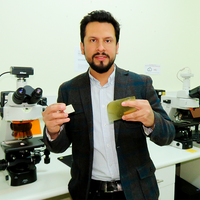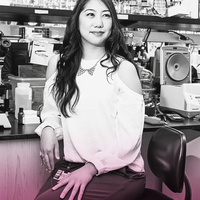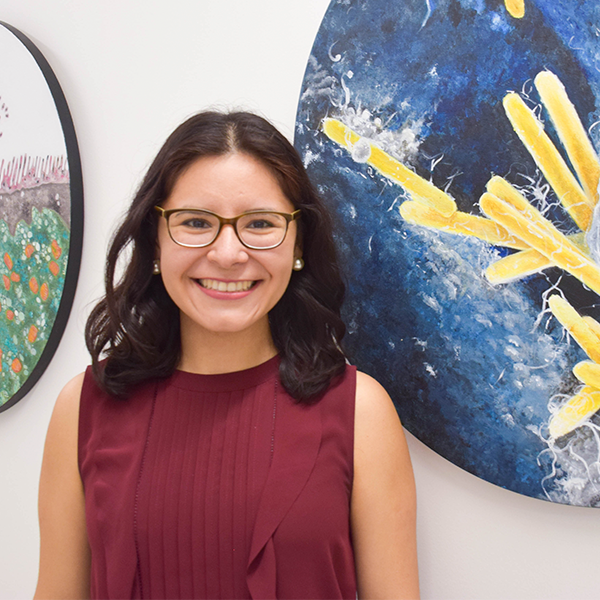Resistant bacteria will kill 10 million people a year by 2050, according to a recent report from the UK government. But despite the seriousness of the problem, the main strategy of the pharmaceutical industry remains to discover new drugs while pathogens continue to evolve. This leads to the current situation: approximately 50% of infections acquired in hospital environments in Latin America are caused by organisms resistant to multiple antibiotics.
"There will always be microorganisms that are resistant to antibiotics" says the biomedical researcher Silvia Caballero. So to fight them off, her approach is to use a probiotic cocktail as a preventive weapon to prevent antibiotic-resistant enterobacteria from colonizing the intestine. Thanks to this advance, Caballero has become one of the winners of the Innovators under 35 Latin America 2018 from MIT Technology Review in Spanish.
Her strategy is the result of her doctoral studies at the Memorial Sloan Kettering (USA). There, she discovered that there are certain bacteria normally present in the intestinal microbiota capable of keeping at bay the proliferation of enterococci and enterobacteria, two types of intestinal pathogens. "The problem is that these bacteria attack people with poor health, with the immune system depressed due to other infections or treatments to avoid rejection of a transplant, for example," explains the female Peruvian doctor.
In her experiments, Caballero has shown that the administration of a probiotic composed of these beneficial bacteria to people whose natural microbiota is altered helps them cope with the proliferation of enterococci and enterobacteria resistant to antibiotics.
"The idea is to administer this treatment in a preventive manner to patients who enter a hospital and are at risk of developing an infection resistant to antibiotics," she summarizes. People in chemotherapy treatments, in intensive care, people who received a transplant ... All of them would be treated until the probiotic cocktail naturally eliminates the pathogens of their intestine, which would prevent the development of an infection impossible to stop.
Once she obtained her doctorate, Caballero started working at Vedanta Biosciences, where she continues to work on trying to turn her discovery into a marketable drug. Her next step is to find the most effective cocktail of microorganisms and start clinical trials in humans. If all goes well, by 2021 the first medication based on the approach proposed by Caballero could be commercialized.
The co-founder and CEO of Miroculus, Alejandro Tocigl, who was chosen Innovator of the year in Innovators Under 35 Chile 2016, considers that Caballero's project "is at the cutting edge of clinical research." This jury member of Innovators Under 35 Latin America 2018 also points out that "the impact that can have of being a successful treatment is enormous."




